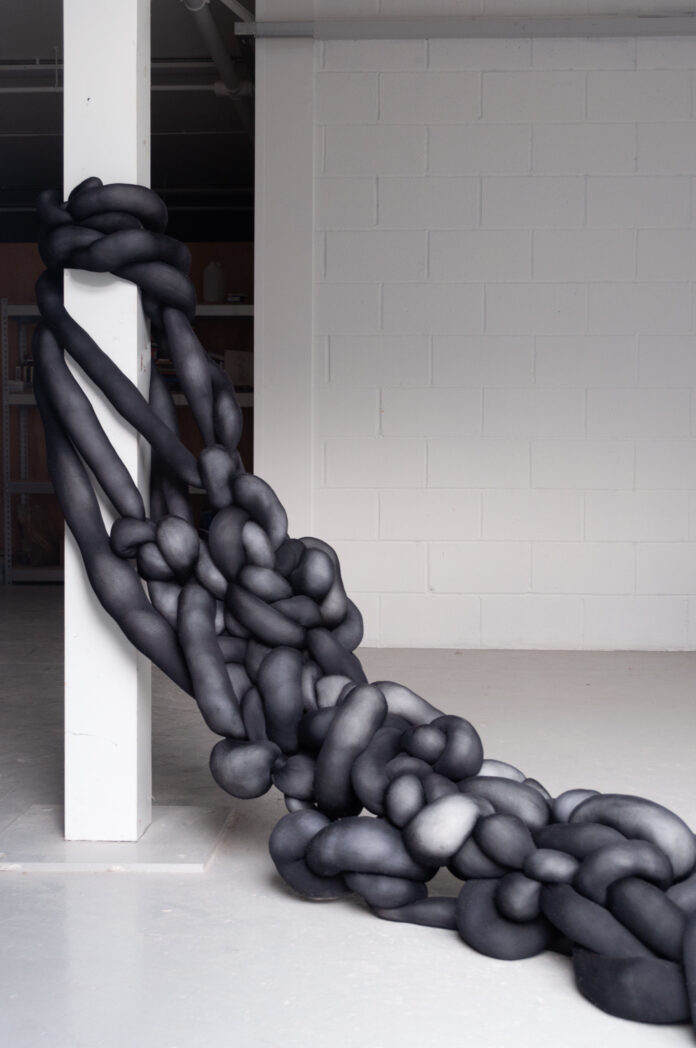In Josefina Sumar’s sculptural lexicon, the body emerges not as a stable referent but as a contested terrain—unruly, fractured, and insistently material. Her recent work, encompassing ceramic assemblage, textile intervention, and photographic performance, engages in an aesthetics of corporeal estrangement that resists resolution. Rather than presenting the body as subject, Josefina positions it as process: a mutable site of trauma, resistance, and tentative repair.
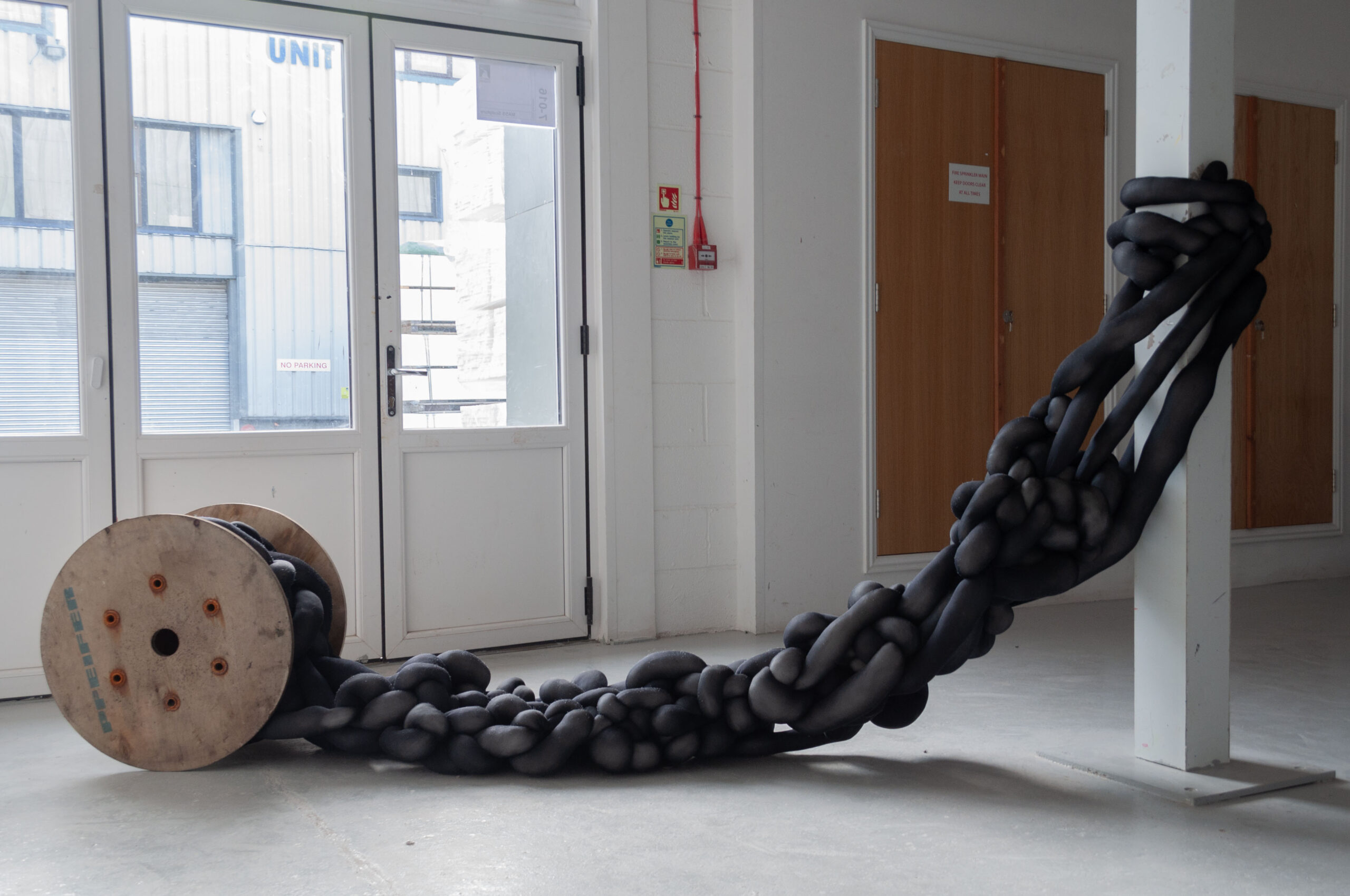
Found object, fabric, stuffing, plaster.
132 cm x 41 cm x 282 cm.
2025
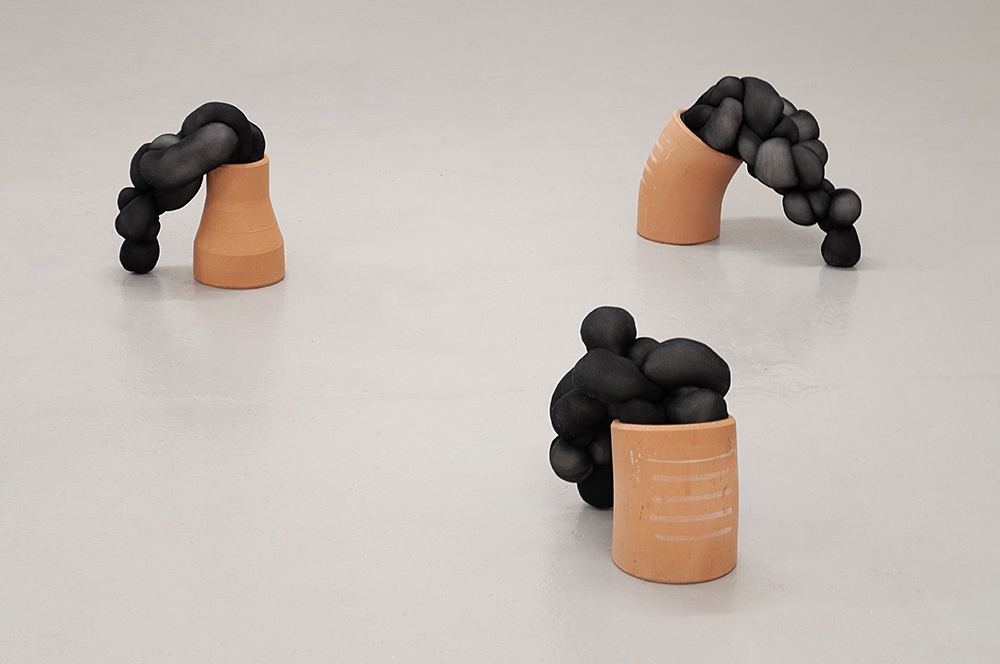
(From the series Inners)
Found objects, fabrics, stuffing
2025
Within series such as Inners and Get Yourself Together, shown during her residency at MASS Education, Josefina activates a tension between formal abstraction and visceral reference. The contorted ceramic tubes of Inners recall internal organs not through mimetic precision but via affective resonance—suggesting esophageal contortion, digestive loops, or obstructed flow.
Materially, Josefina’s practice is guided by a tactility that borders on the confrontational. Clay, fabric, stuffing, thorns, and found debris are not merely mediums but signifiers—each indexed to states of excess, rupture, and vulnerability. In works like Oops (2025), textile forms sprawl across the floor in what appears as a half-domestic, half-anatomical spillage. These anthropomorphic silhouettes function as uncanny vessels: familiar yet estranged, playful yet grotesque. There is an intentional semiotic slippage here—the body appears only in fragments, often abject, never whole.
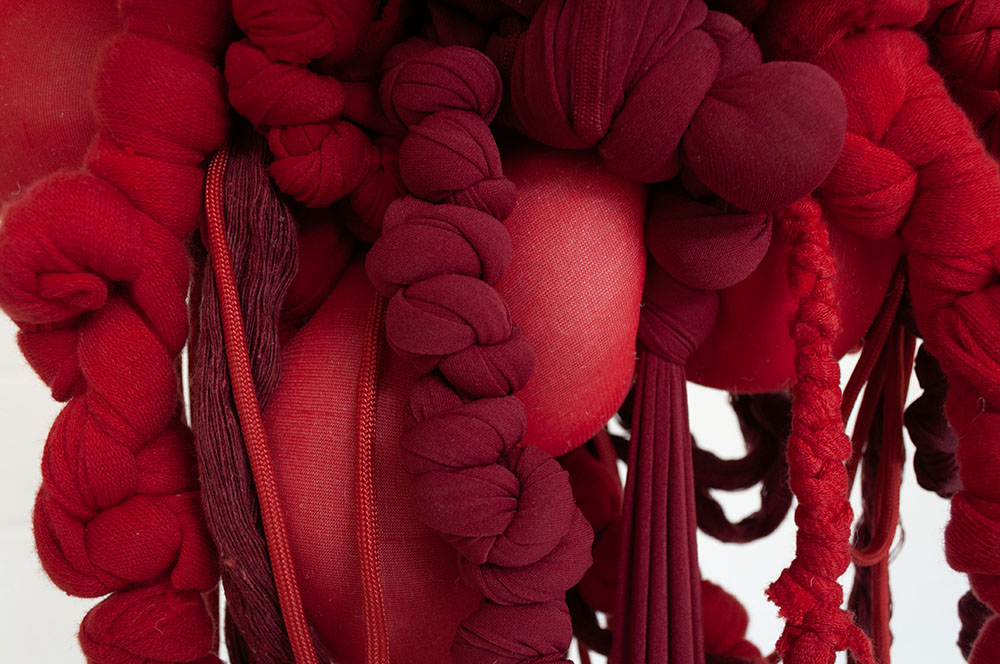
Fabric, stuffing, rope and seeds.
290 cm x 47 cm x 44 cm.
2025
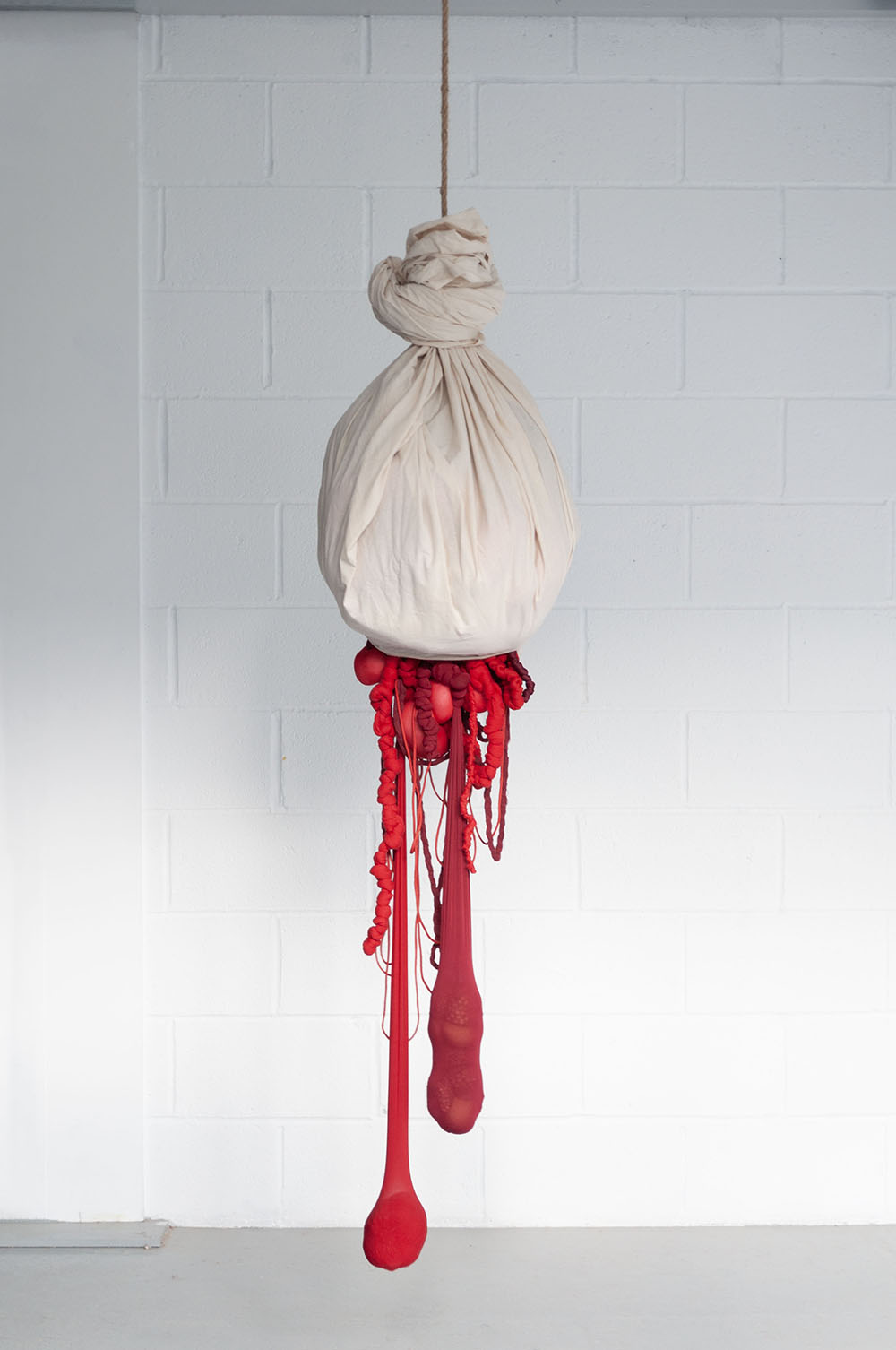
Fabric, stuffing, rope and seeds.
290 cm x 47 cm x 44 cm.
2025
The shift from ceramic to soft sculpture marks not only a material transition but an epistemological one. If ceramics encode containment and control, the textile works operate through leakage, folding, and collapse. Josefina’s engagement with softness is anything but passive; it becomes a site of critical intensity. Her use of textile stuffing, for instance, complicates the notion of interiority—stuff bursts out, stretches, recoils. These forms undermine sculptural containment, foregrounding instability as both formal and conceptual strategy.
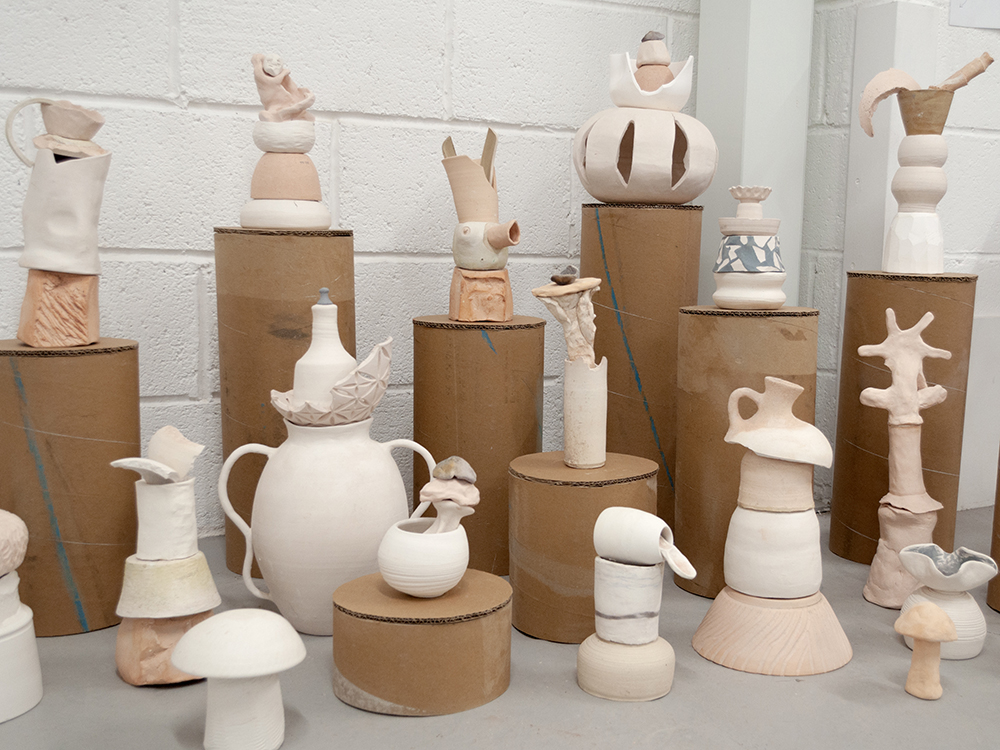
Found, damaged and discarded pieces of
ceramics and cardboards.
Variable
2025
In Get Yourself Together, Josefina turns her attention to the idea of recuperation—but not in the neat, redemptive sense we might expect. These sculptures are pieced together from fragments of discarded ceramic works, often the failed remains of other artists’ attempts. Rather than concealing the cracks, she lets the damage stand, even amplifies it. Each piece sits on a wobbly cardboard plinth, no two quite the same height, creating an uneven field where no object dominates. The result is less a story of healing than a quiet proposition about upkeep—messy, unglamorous, and lived in the body.
This embrace of incompleteness carries over into Efimeral Bodies, a photographic series where Josefina folds her own body into improvised sculptural setups. The images drift somewhere between performance and self-portrait, translating the physical language of her installations into staged, bodily scenes. The invented word “Efimeral”—splicing the English “ephemeral” with its Spanish cousin—points to the way her whole practice lets language slip, mutate, and refuse stability. Words, like bodies, are left partial and in motion.

What sets Josefina apart is her ability to let material speak for itself—not as metaphor, but as trace and evidence. Her work could be described as a poetics of disrepair: a sculptural vocabulary where breakage, softness, and decay are not flaws but ways of knowing. In an art world increasingly drawn to the glossy and the conceptual, she reintroduces the weight of the visceral. The work doesn’t offer closure or easy beauty—it asks us to stay with what’s uneasy, to treat that discomfort as a place where something new might grow.
